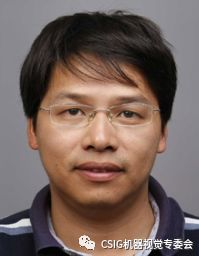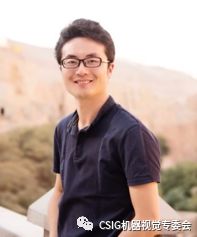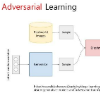PRCV 2018论坛:深度学习理论理解
时间及地点:
2018年11月25日9:30-12:30,广州白云国际会议中心2号楼2楼汕头厅(需注册PRCV2018)
论坛简介:
伴随着近年来深度学习在实际应用中取得的巨大成功,学术界和工业界对其成功背后的工作机理和理论保障等理解的诉求越来越强烈。目前已有一些数学工具被尝试用来解释深度学习,包括概率理论、信息论、统计物理学等等。这些理论分析从不同角度为理解深度学习奠下基石。本次论坛的主要目的是为活跃在该领域的研究者提供一个交流最新研究成果的平台,同时也希望吸引相关从业者关注深度学习理论,实现理论与实践的相互促进。
本论坛由中国图象图形学学会机器视觉专委会、微软亚洲研究院及华南理工大学联合举办。
论坛组织者:
陈薇,微软亚洲研究院机器学习组主管研究员;
贾奎,华南理工大学教授,国家青年千人,广东省“珠江人才计划”创新创业团队带头人;
谭明奎,华南理工大学教授、博导,华南理工大学计算中心主任,国家青年千人,广东省“珠江人才计划”创新创业团队第一核心成员;
刘同亮,悉尼大学讲师。
论坛议程:
时间 |
报告人 |
报告题目 |
|
9:30am~10:00am |
林宙辰 |
优化算法启发的深度神经网络设计 |
|
摘要:优化是机器学习的有机组成部分,但是优化算法不仅仅是神经网络训练的工具,它还可以用于设计深度神经网络。本讲座将介绍如何从一阶优化算法得到启发,进行深度神经网络设计。 |
|||
10:00am~10:30am |
郭天佑 (James Kwok) |
机器学习优化研究:从单一目标到无穷目标 |
|
摘要:Optimization is at the core of machine learning. In this talk, I will consider a variety of machine learning scenarios and the corresponding optimization solvers. Starting with the basic gradient descent method for optimizing one single objective, I will move on to more and more complicated problems with different numbers and types of regularizers, and to stochastic algorithms using control variates for variance reduction. Finally, I will discuss the expected risk minimization problem in learning with random data perturbations. The distribution of possible perturbations essentially makes the training data set, and consequently the number of terms to optimize, infinite. |
|||
10:45am~11:15am |
朱占星 |
对抗学习:一种提升深度学习鲁棒性和泛化性的框架 |
|
摘要:Deep learning has achieved tremendous success in various application areas. Unfortunately, recent works show that an adversary is able to fool the deep learning models into producing incorrect predictions by manipulating the inputs maliciously. The corresponding manipulated samples are called adversarial examples. This vulnerability issue dramatically hinders the deployment of deep learning, particularly in safety-critical applications. In this talk, I will introduce various approaches for how to construct adversarial examples, and show how to understand and enhance the transferability of adversarial examples. Then I will present a framework, named as adversarial learning, for improving robustness of deep networks to defense the adversarial examples. Moreover, I will show that the introduced adversarial learning framework can be extended as an effective regularization strategy to improve the generalization in semi-supervised learning. This talk will cover three pieces of works we have done recently, including one NIPS 2018 paper and two others submitted to ICLR 2019. |
|||
11:15am~11:45am |
龙明盛 |
跨数据和任务域深度学习泛化研究 |
|
摘要:Transfer learning is a subfield of machine learning that enables adaptation of learning machines to novel domains. While recent studies reveal that deep neural networks can learn transferable features to bridge different domains, the transferability drops significantly by increasing domain discrepancy. In this talk, I will introduce our recent advances made in bridging deep learning and transfer learning to empower disentangled and transferable representations that generalize across different domains and tasks. This talk will cover the principled approaches to distribution comparisons of marginal and joint distributions, from non-parametric/semi-parametric statistical distances to multiple/conditional adversarial discriminators, as well as some theoretical insights underlying these approaches. |
|||
12:00am~12:30am |
谭明奎 |
从局部把握全局,一种新的对抗学习方式及泛化性能分析 |
|
摘要:生成对抗网络(GANs)能够从某个先验分布(例如高斯噪声)生成真实的数据。然而,这种先验分布通常独立于真实数据分布,因此可能丢失数据的语义信息(例如图像中的几何结构或内容)。在实验中,语义信息可以从数据中学习到的隐分布来表示,然而,这很难用于GAN中的采样。近期,我们团队提出一种基于局部坐标编码的对抗学习,通过一种基于局部坐标编码(LCC)的采样方法来提升GAN的性能,而不是从预定义的先验分布中采样。我们理论分析了LCC-GANs的泛化界限,并证明一个低维的输入足以实现良好的泛化性能。在实验中,我们在多个数据集上证明了该方法的有效性。该工作发表在ICML 2018上。 |
|||
讲者简介:
林宙辰,北京大学信息科学技术学院智能科学系教授,国家杰出青年基金获得者, IAPR/IEEE Fellow
林宙辰,北京大学教授,中国图象图形学学会机器视觉专委会主任,中国自动化学会模式识别与机器智能专委会副主任。研究领域为计算机视觉、机器学习、图像处理、模式识别和数值优化。发表论文160余篇,英文专著1本。任CVPR2014/2016/2019、ICCV 2015、NIPS2015/2018和AAAI 2019领域主席,AAAI 2016/2017/2018和IJCAI 2016/2018高级程序委员,IEEE T. PAMI、IJCV编委。

郭天佑,香港科技大学教授,IEEE Fellow
Prof. Kwok received his B.Sc. degree inElectrical and Electronic Engineering from the University of Hong Kong and his Ph.D. degree in computer science from the Hong Kong University of Science and Technology. He then joined the Department of Computer Science, Hong Kong Baptist University as an Assistant Professor. He returned to the Hong Kong University of Science and Technology in 2000 and is now a Professor in the Department of Computer Science and Engineering. He served/is serving as an Associate Editor for the IEEE Transactions on Neural Networks and Learning Systems, Neurocomputing, International Journal of Data Science and Analytics (JDSA), and Governing Board Member of the Asia Pacific Neural Network Society (APNNS). He also served/is serving as Area Chairs of major machine learning / AI conferences including NIPS (2015,2016,2018), ICML (2015-2018), IJCAI(2017,2018), AAAI (2019) and ECML (2011,2012).
朱占星,北京大学数据科学研究中心、北京大数据研究院特聘研究员
朱占星2016年在英国爱丁堡大学获得机器学习方向博士学位。主要研究领域为人工智能、机器学习、深度学习、强化学习、大规模优化及贝叶斯计算,以及机器学习在安全、图形学、交通大数据中的应用等,在人工智能/机器学习领域顶级期刊及会议有多篇文章发表,包括NIPS、ICML、ACL、IJCAI、AAAI及ECML等。
龙明盛,博士,清华大学助理教授
Mingsheng Long is a tenure-track Assistant Professor at TsinghuaUniversity. He is the director of the Machine Learning Group in the National Engineering Lab for Big Data Software. He earned his Ph.D. degree in Computer Science from Tsinghua University in 2014, and was a visiting researcher in AMP Lab and SAIL Lab at UC Berkeley. He has published 35 papers in prestigious venues including TPAMI, ICML, NIPS, CVPR, and ICCV. His current research spans machine learning algorithms, systems, and applications, with specific focuses on deep learning, transfer learning, predictive learning, and adversarial learning.
谭明奎,华南理工大学软件学院教授、博导,国家青年千人
谭明奎教授分别在2006年和2009年于湖南大学获得环境工程学士和模式识别与智能系统硕士学位,于2014年在新加坡南洋理工大学获得计算机科学博士学位,并于2016年在澳大利亚阿德莱德大学完成计算机视觉博士后研究。目前主要研究方向为机器学习算法与理论、机器视觉,已在相关方向发表高水平学术论文近50篇,包括NIPS、KDD、ICML、CVPR、IJCAI及AAAI等。现担任华南理工大学计算中心主任、广东省“珠江人才计划”创新创业团队第一核心成员。







